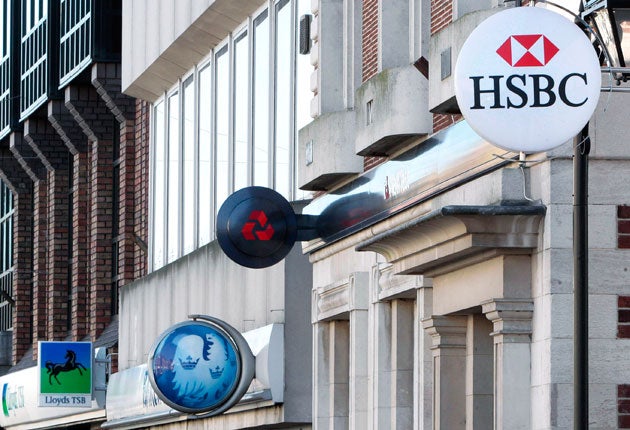Cable and Osborne clash over bank bonus reform

Your support helps us to tell the story
From reproductive rights to climate change to Big Tech, The Independent is on the ground when the story is developing. Whether it's investigating the financials of Elon Musk's pro-Trump PAC or producing our latest documentary, 'The A Word', which shines a light on the American women fighting for reproductive rights, we know how important it is to parse out the facts from the messaging.
At such a critical moment in US history, we need reporters on the ground. Your donation allows us to keep sending journalists to speak to both sides of the story.
The Independent is trusted by Americans across the entire political spectrum. And unlike many other quality news outlets, we choose not to lock Americans out of our reporting and analysis with paywalls. We believe quality journalism should be available to everyone, paid for by those who can afford it.
Your support makes all the difference.The simmering tension over banking policy between the Chancellor, George Osborne, and Vince Cable, the Business Secretary, sparked back into life yesterday after Mr Cable issued a strongly worded statement in response to Mr Osborne's suggestion that some of Britain's proposed banking bonus reforms could be toned down.
Mr Cable said in a statement: "Transparency is key to creating confidence in any commitment from our banks to behave more responsibly on pay and bonuses. Outrageous and irresponsible pay structures were a driver in our financial crisis."
It followed Mr Osborne's suggestion that Britain might be better off promoting greater transparency internationally rather than going it alone. This could include ditching or watering down a plan that forces banks to publish details of bankers earning more than £1m.
Mr Cable is strongly in favour of tougher rules on banks and part of the reason for setting up the Independent Commission on banking under Sir John Vickers was to deal with disagreements between the coalition partners over the best way forward.
A requirement for banks to disclose bonuses and salary payments over £1m was made law by Alistair Darling, the former Labour chancellor, in the wake of recommendations by Sir David Walker in a report on City pay last year. He now says he believes Britain would be mistaken to go it alone although the disclosure requirements in some territories, including Hong Kong, exceed that in Britain.
The British Bankers' Association (BBA) has long argued that the unilateral imposition of regulations in Britain, either by Parliament or hailing from Europe, will damage the City's international competitiveness and result in business leaking away to alternative financial centres overseas.
However, Brendan Barber, the TUC general secretary, said: "Not only is the Government failing to rein in bonuses, it's now planning to let bankers keep them secret. This may be a triumph for the bankers' lobby, but ministers are mistaken if they think this will head off public anger at mega-bonuses at a time of supposed austerity for all."
Mr Cable's cause will have been strengthened by the industry's latest public relations blow. Yesterday the BBA said gross lending to small businesses in September was £564m, down from £572m in the same period last year.
The BBA sought to cast a positive light on the figures with David Dooks, statistics director, saying: "September's gross lending of £564m was on a par with September 2009 and reflected more than 10,000 new small business loans being granted in the month. However, the primary banking relationship for small businesses remains focused around operating current and savings accounts."
However, critics were quick to jump on the figures as evidence of banks failing to meet their commitments to back the recovery and smaller companies. James Meekings, co-founder of Funding Circle, set up to provide an alternative source of finance to smaller enterprises, said: "Banks continue to claim that low levels of lending are due to fewer businesses seeking funding but small businesses tell us banks are charging rates of up to 18 per cent on their loans which simply makes loans unaffordable."
Join our commenting forum
Join thought-provoking conversations, follow other Independent readers and see their replies
Comments